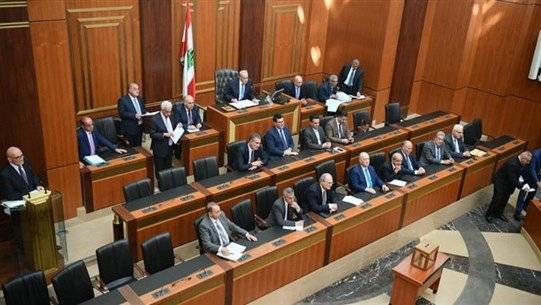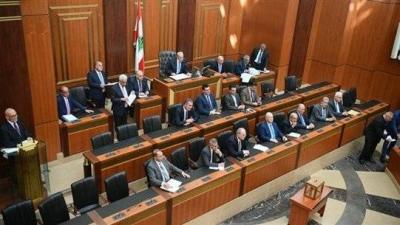The only potential surprise that might occur in tomorrow's parliamentary session for the election of a president is the abstention of the deputies belonging to the "Forces of Change" bloc from proposing any candidates outside the traditional political alignments. This comes after they previously nominated Selim Michel Edde in the first session, despite having held discussions with the two former ministerial candidates Nassif Hitti and Ziad Baroud, as well as former deputy Salah Edward Hennin. The reason for this shift is not only due to the heated discussions among the deputies regarding their approach to the presidential entitlement but also stems from a desire to intensify their consultations to form a significant parliamentary bloc. This would enable them to play a more active role in the presidential election, based on their assessment that their coalition with a number of independent deputies will allow them to act as a swing vote in securing a place for themselves among the deciding parliamentary blocs in the presidential election.
However, this surprise could also extend to candidate Michel Rina Moawwad if he can achieve a breakthrough that secures him broader support, with a primary focus on gaining the backing of several deputies from the "Moderation" bloc. These deputies had voted with a ballot marked with the name of Lebanon in the first round of elections.
To this end, Moawwad met yesterday with the members of the "Moderation" bloc in an effort, supported by his allies, to persuade as many of them as possible to endorse his candidacy for the presidency. His opponents view tomorrow's parliamentary session as a crucial test of the resilience of the bloc's deputies to maintain their stance of voting for Lebanon and to resist pressures and temptations aimed at softening their position in support of Moawwad.
Sources informed "Asharq Al-Awsat" that Moawwad's allies initiated contact with several deputies from the "Moderation" bloc to convince them of the necessity to stand by him in the presidential race, based on a set of commonalities that form a meeting point between the two sides. Will Moawwad succeed in his crucial meeting yesterday with the "Moderation" bloc, which is predominantly composed of Sunni parliamentary presence, in swaying their position and getting support from some of them? Or will limited support from only his allies open the door for reshuffling candidates and endorsements in future electoral rounds, considering that tomorrow's session will replicate the previous one? Thus, the gamble remains on the open voting sessions scheduled within the ten days of Michel Aoun's presidential term remaining, despite widespread predictions that the country will fall into a potentially long presidential vacancy unless external interventions push for the election of a president before any prolonged vacancy ensues.




